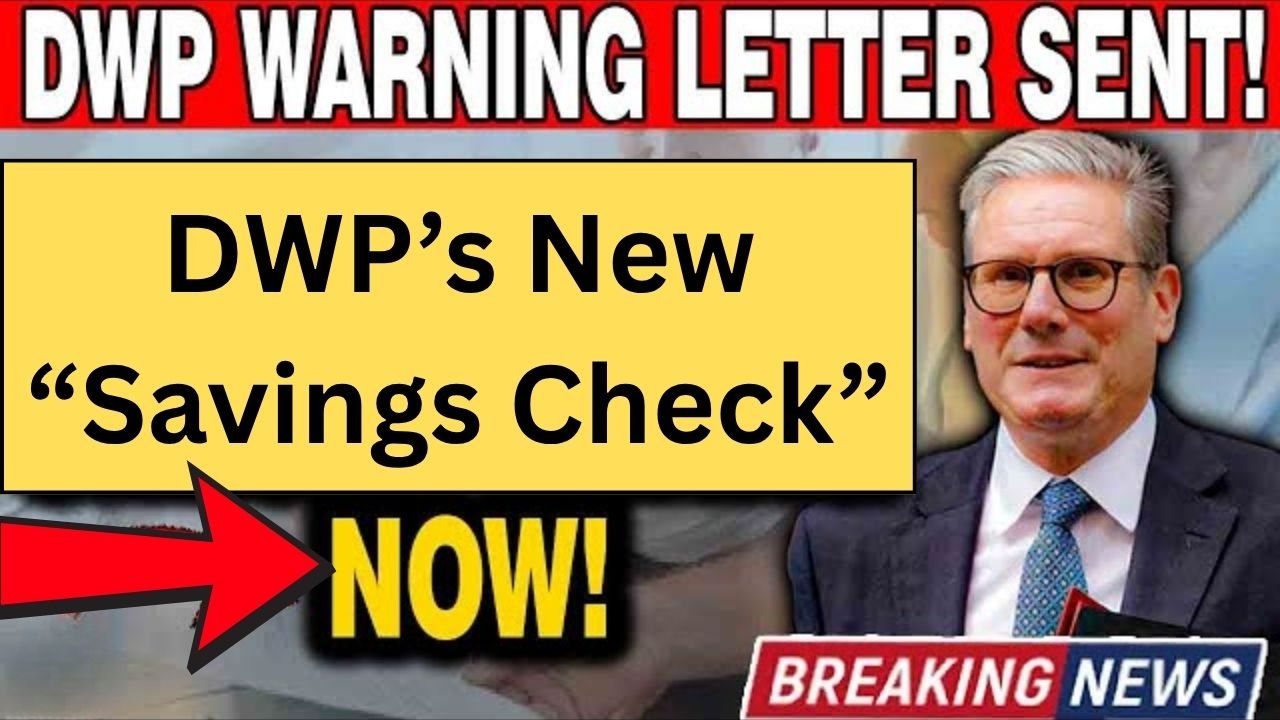The Department for Work and Pensions (DWP) has introduced a new “Savings Check” starting June 20, 2025, that could affect benefits for thousands of people across the UK. This rule targets those claiming benefits like Universal Credit, Pension Credit, or Income Support, checking their savings and income to decide if they still qualify. With living costs still high, losing benefits could hit hard, so it’s vital to understand what’s happening and what you need to do to keep your payments safe.
What Is the Savings Check?
The DWP’s new Savings Check is a way to make sure benefits go to those who need them most. If you claim certain benefits, the DWP will look at your savings, investments, and any extra income, like rent from a property. For Universal Credit, if you or your partner have over £16,000 in savings, you could lose your payments entirely. For Pension Credit, the rules are a bit different—savings over £10,000 start to reduce your benefit, with every £500 above that cutting your weekly payment by £1.
The check will happen automatically using data from banks and other sources, but the DWP might also ask you to report your savings yourself. This applies to new claims and existing ones, so even if you’ve been getting benefits for years, you could face a review. Around 3.5 million people on Universal Credit and 1.2 million on Pension Credit might be affected, according to DWP estimates.
How It Affects Your Benefits
Here’s how the savings limits work for key benefits in 2025:
| Benefit | Savings Limit | Impact |
|---|---|---|
| Universal Credit | £16,000 | No payments if savings exceed this |
| Pension Credit | £10,000 | £1 less per week for every £500 over |
| Income Support | £16,000 | No payments if savings exceed this |
| Jobseeker’s Allowance | £16,000 | No payments if savings exceed this |
If you’re on Universal Credit and your savings go over £6,000 but stay under £16,000, your payments might still be reduced. For example, every £250 over £6,000 counts as £4.35 of monthly income, lowering your benefit. The DWP says these rules help target support, but critics argue they punish people who’ve saved for emergencies.
Why the DWP Is Doing This
The DWP says the Savings Check is about fairness and making sure the benefits system is sustainable. With more people claiming benefits due to rising costs, they want to focus on those with the least. The checks will also use new technology to spot unreported savings or income, like money from side jobs or investments. If you don’t report changes in your savings, you could face penalties or have to repay benefits, so it’s crucial to keep the DWP updated.
Some groups, like pensioners or disabled people, worry this could leave them struggling. For instance, someone on Pension Credit with £12,000 in savings might see their weekly payment drop by £4, which adds up over time. The DWP insists they’ll give clear warnings before cutting benefits, but you’ll need to act fast if you get a letter or call.
What You Need nitrite Do Now
- Check your savings: Look at all your bank accounts, ISAs, or investments. If you’re close to the limit, consider spending on essentials or moving money to a partner’s account (if they’re not claiming benefits).
- Report changes: Tell the DWP about any new savings or income right away. You can do this online, by phone, or through your local Jobcentre.
- Apply for exemptions: Some savings, like money from a personal injury claim, might not count. Ask the DWP if you think this applies to you.
- Seek advice: Contact Citizens Advice or a local welfare service if you’re unsure about your situation. They can help you avoid losing benefits.
The DWP website has a tool to estimate how savings affect your benefits. You’ll need your National Insurance number and bank details ready. If you’re asked to provide information, reply within 14 days to avoid payment delays.
Extra Support and Next Steps
If you lose benefits due to the Savings Check, you might still qualify for other help, like council tax discounts or energy bill support. Check with your local council for schemes in your area. The DWP also offers free advice through their helpline, and you can appeal if you think a decision is unfair. Start by contacting them within one month of a decision.
With the Savings Check now in place, it’s more important than ever to stay on top of your finances. Acting quickly and keeping the DWP informed can help you hold onto your benefits and avoid surprises. Visit the DWP website or call their helpline for guidance, and don’t wait for a letter to take action.
Sources: DWP updates, Gov.uk, Citizens Advice, Express.co.uk, q417.org




